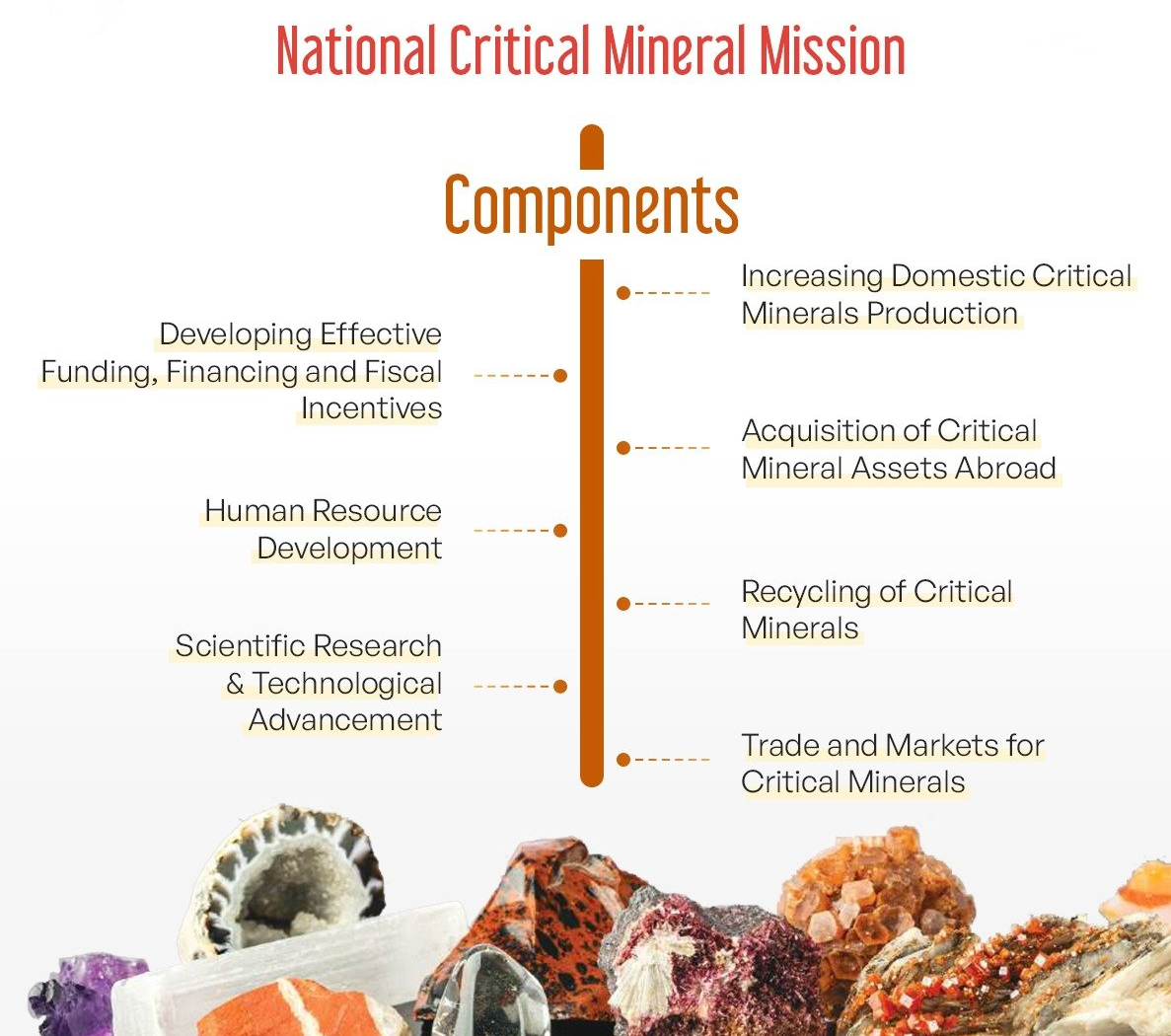Context:
Recently, parliament passed the Mines and Minerals (Development and Regulation) Amendment Bill, 2025, a landmark legislation aimed at boosting India’s access to critical minerals such as lithium, cobalt, and nickel. The Bill allows existing leaseholders to mine these critical minerals without paying additional royalty, making India more attractive for investment and self-reliance in strategic resources.
About Critical minerals:
Critical minerals are essential components in many modern technologies, including clean energy, electronics, and defense applications, and their supply chains are often vulnerable to disruption. These minerals are essential for sectors like electric vehicles, semiconductors, batteries, renewable energy, and defence manufacturing.
Key Provisions of the Amendment Bill:
The Bill amends the Mines and Minerals (Development and Regulation) Act, 1957. Major features include:
- Allowing leaseholders to add critical minerals to their mining portfolio without additional royalty.
- Empowering the Union Government to create mineral exchanges to enhance transparency and efficiency in mineral trading.
- Reinforcing the government’s ability to promote exploration, extraction, and development of critical minerals.
Significance of the Reform:
- Resource Security: Reduces India’s dependence on imports, especially from dominant players like China.
- Clean Energy Push: Provides domestic supply for EVs, solar panels, and battery storage.
- Strategic Sector Support: Strengthens India's manufacturing in defence, electronics, and aerospace.
- Ease of Doing Business: Incentivises investment by reducing royalty burdens and simplifying mining operations.
About National Critical Mineral Mission:
Complement the reforms, the government launched the National Critical Mineral Mission with an outlay of ₹34,000 crore. Its objectives include:
- Exploration of 24 identified critical minerals.
- Development of domestic and offshore reserves.
- Strengthening public-private partnerships in mining.
The National Mineral Exploration Trust has been renamed the National Mineral Exploration and Development Trust to reflect the new focus on industrial application and development.
Challenges
While the reform is ambitious, it faces key challenges:
- Environmental risks in ecologically sensitive zones.
- Global competition in a space already dominated by technologically advanced countries.
- Lack of domestic refining and processing capabilities.
- Geopolitical complexities due to strategic nature of these minerals.
Conclusion:
Nonetheless, if implemented responsibly, this Bill could make India a global player in the critical minerals market, while supporting Atmanirbhar Bharat, the energy transition, and Make in India initiatives.







